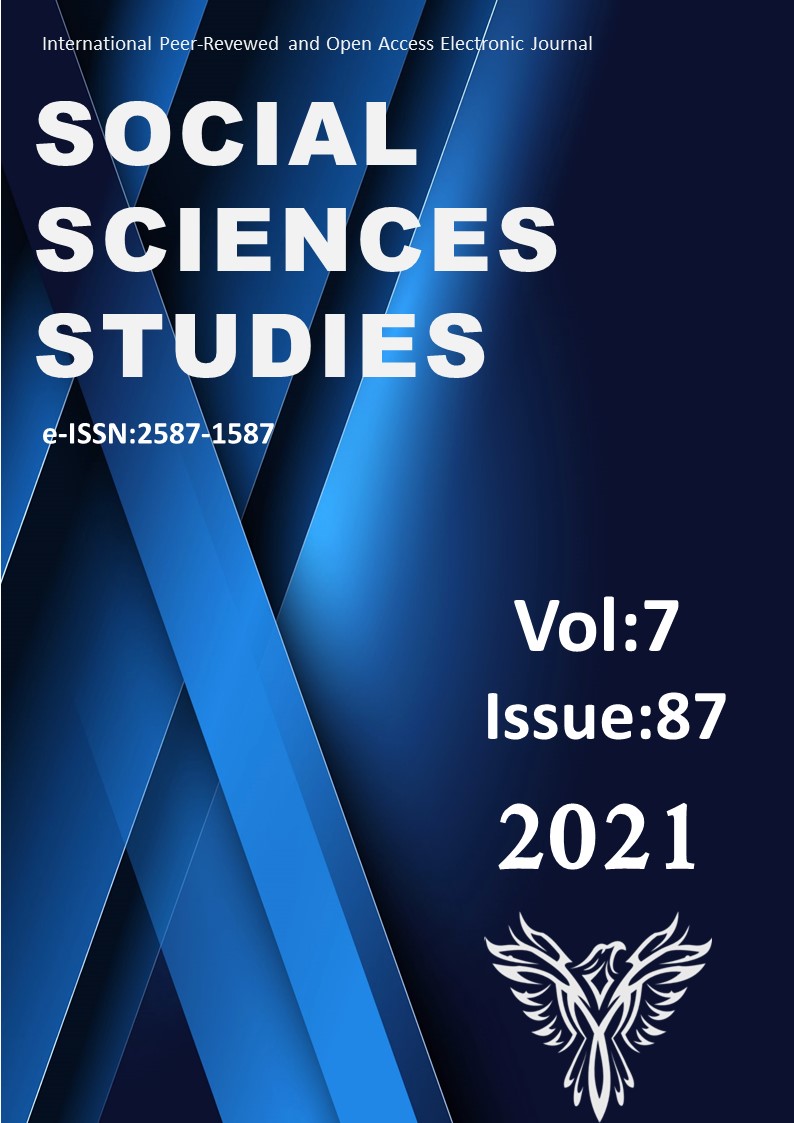Author :
Abstract
Dijitalleşme ve dijital teknolojilerin kullanımı gerek toplumsal gerekse kurumsal yaşamın dinamiklerini her yönüyle etkilemekte ve değiştirmektedir. Dijitalleşme birçok kişi ve kurum için adaptasyonu zor bir süreç olarak görülürken bazıları için ise rekabet avantajı sağlayan ve yeni fırsatlar yaratan bir değer olarak görülmektedir. Ortak kanı dijitalleşmenin önemi ve gereğinin son 1 yılı aşkın sürede dünyanın içinde bulunduğu Covid-19 pandemisi sürecinde daha iyi anlaşıldığına yöneliktir. Bu süreçte insanlar sosyal izolasyona maruz kalırken, kurumlar faaliyetlerini ve hizmetlerini önemli ölçüde kısıtlamışlardır. Pandemi döneminde dijital teknolojiler ve ona bağlı iletişim, üretim ve dağıtım sistemleri bireylerin ve kurumların muhataplarıyla iletişim kurmalarına, ticari faaliyetlerini ve hizmetlerini kısıtlı da olsa uzaktan sürdürmelerine imkan tanımıştır. Bu olgudan yola çıkarak bu makalede dijitalleşmenin önemi ve içinde bulunduğumuz kriz şartlarında dijital iletişimin ve sosyal medyanın ortaya çıkardığı imkanlar kurumlar ve markalar özelinde tartışılmıştır. Bu tartışma için pandemi sürecinde tüm dünyada uygulanan seyahat kısıtlamaları nedeniyle en çok etkilenen sektörlerden biri olan havayolu taşımacılığının aktörlerinden biri olan Türk Hava Yolları (THY) seçilmiştir. Türk Hava Yolları’nın Covid-19 pandemisi sürecinin başından günümüze kadar izlemiş olduğu kriz iletişimi anlayışı, dijital ve sosyal medya kullanım amaçları ve bu araçların bu süreçte oynadıkları roller genel olarak sorgulanmıştır. Bu sorgulamada THY Kurumsal İletişim Departmanının ilgili birimleri ve yöneticileriyle yapılan yarı yapılandırılmış görüşme yönteminden yararlanılmıştır. Görüşme sonucunda elde edilen bulgulara göre THY, Pandemi sürecinde dijital ve sosyal medya platformlarını ve araçlarını kriz iletişimi stratejisinin ve faaliyetlerinin merkezinde konumlarken krizin yarattığı kısıtları aşmada ve hedef kitleleri ile iletişim ve ilişki kurmada yoğun olarak kullanmıştır.
Keywords
Abstract
Digitalization and the use of digital technologies affect and change the dynamics of both social and corporate life in every aspect. While digitalization is seen as a difficult process for many people and institutions to adapt, it is seen as a value that creates competitive advantage and new opportunities for many. The common opinion is that the importance and necessity of digitalization have been better understood during the Covid-19 pandemic process, which the world has been in for the last 1 year. In this process, while people were exposed to social isolation, institutions significantly restricted their activities and services. During the pandemic period, digital technologies and related communication, production and distribution systems have allowed individuals and institutions to communicate with their interlocutors and to maintain their commercial activities and services from a distance, albeit limited. Based on this fact, in this paper, the importance of digitalization and the opportunities created by digital communication and social media in the current crisis conditions are discussed in terms of institutions and brands. For this discussion, Turkish Airlines (TA), one of the actors of airline transportation, which is one of the most affected sectors due to travel restrictions applied all over the world during the pandemic process, was chosen. The understanding of crisis communication that TA has followed from the beginning of the Covid-19 pandemic process to the present, the purposes of using digital and social media, and the roles played by these tools in this process were generally questioned. In this query, the method of semi-structured interview with the relevant managers from TA Corporate Communications Department was used. According to the findings obtained as a result of the interview, TA has chosen to use digital and social media platforms and tools intensively in overcoming the constraints created by the crisis and in establishing communication and relations with its target audiences, while positioning it at the center of its crisis communication strategy and activities during the pandemic process.





